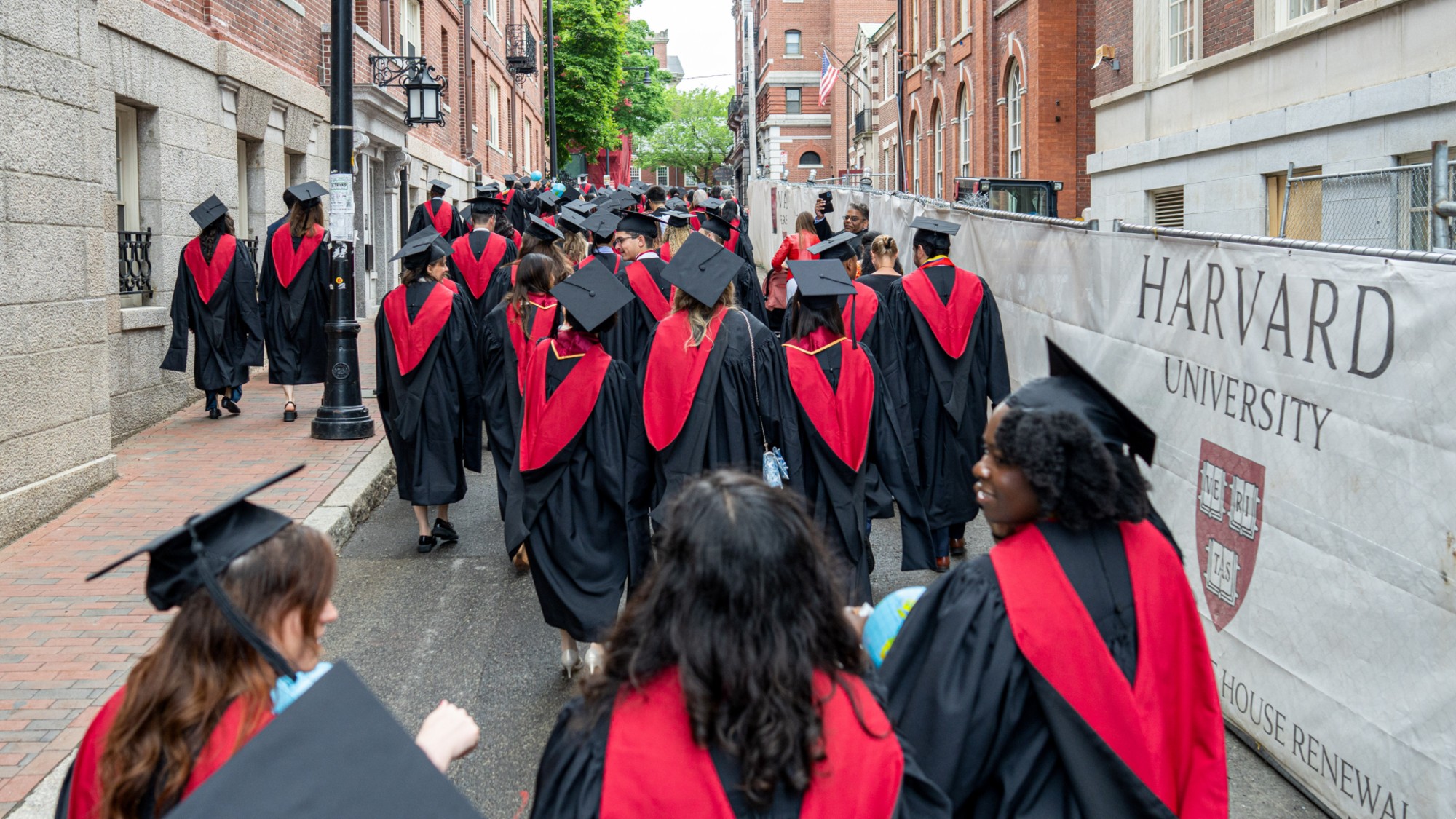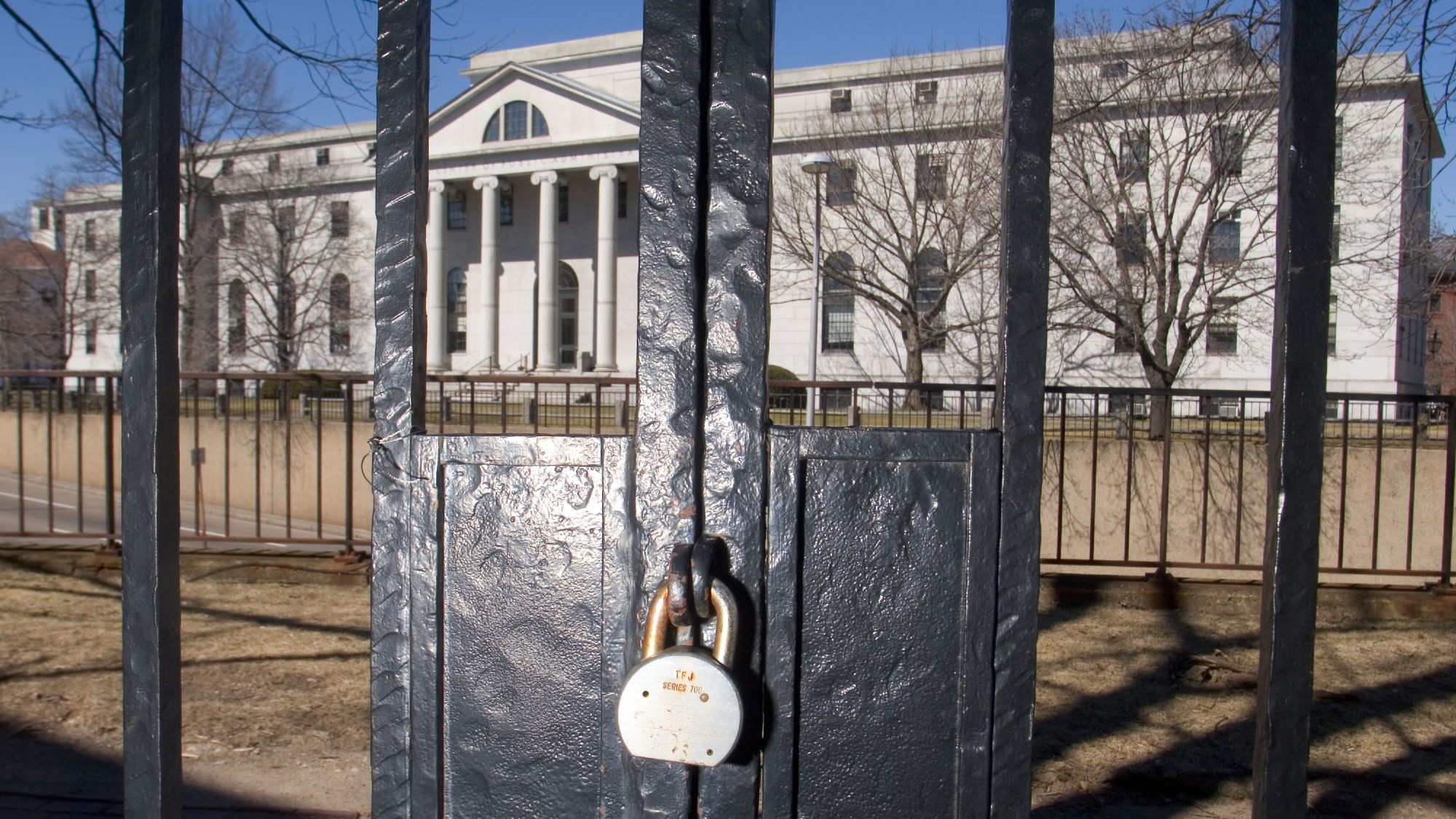Super-universities: the answer to higher education’s financial woes?
Merger of Kent and Greenwich universities marks a ‘watershed moment for the English sector’

A free daily email with the biggest news stories of the day – and the best features from TheWeek.com
You are now subscribed
Your newsletter sign-up was successful
The universities of Kent and Greenwich are to merge into a “super-university” that leaders hope will provide a model for other institutions in the beleaguered higher education sector to follow.
The new London and South East University Group will become one of the largest higher education institutions in the UK, with its combined total of almost 50,000 students putting it on a par with the University of Manchester. The two institutions will award separate degrees but combine their backroom services and share a single vice-chancellor. Legally, they will be one entity but two separate “brands”.
While there have been other higher education mergers in recent years, “the size and scale, along with the much-anticipated deployment of a multi-university model for the first time, mark this news as something of a watershed moment for the English sector”, said higher education news website Wonkhe.
The Week
Escape your echo chamber. Get the facts behind the news, plus analysis from multiple perspectives.

Sign up for The Week's Free Newsletters
From our morning news briefing to a weekly Good News Newsletter, get the best of The Week delivered directly to your inbox.
From our morning news briefing to a weekly Good News Newsletter, get the best of The Week delivered directly to your inbox.
Why is this needed?
Britain's higher education sector is facing a financial time bomb. A combination of frozen tuition fees, rising costs and falling international student admissions means more than two-fifths of universities are forecast to be in deficit for the academic year 2024/25, according to the Office for Students.
There are fundamental problems with the funding model universities have adopted over the past 25 years, said The Guardian in an editorial, “among them the questionable ethics of students from poorer countries subsidising the education of young Britons”.
“Brexit, international competition and regulations designed to cut immigration (by preventing students from bringing family members), have all harmed UK universities’ ability to attract students.”
It is time to change the “one-size-fits-all operating model”, with “more collaboration, segmentation and differentiation between institutions”, said Philip Augar in the Financial Times. “A commitment to life-long learning would restore a slump in adult education. Governance should be sharper.”
A free daily email with the biggest news stories of the day – and the best features from TheWeek.com
Will mergers work?
“Mergers have increasingly been posed as one potential solution to the precarious financial situation British universities find themselves in,” said Times Higher Education. A recent report commissioned by Universities UK, which represents university leaders, recommended more institutions formally collaborate or share services to ensure their survival.
The model is similar to multi-academy trust structures in schools and “is by no means limited to only two universities operating under one umbrella”, said Wonkhe. “Conversations behind the scenes over the last couple of years” have explored the idea of “groups spanning multiple universities and it’s not hard to see how others in the region might want to – or somehow be compelled to – join this group once it’s up and running”.
While the Department for Education said ministers “welcome innovative approaches” such as the one announced this week, others question the real motives and the impact formal tie-ups will have. UCU General Secretary Jo Grady told the BBC that what is being described as a merger is really “a takeover by Greenwich” as Kent was on “the brink of insolvency”.
“Both of these institutions should have been on the government’s radar, and rather than stepping in, we’re seeing that this is how a crisis is managed,” she said. “This isn’t offering stability to students, to staff or to the sector.”
-
 Local elections 2026: where are they and who is expected to win?
Local elections 2026: where are they and who is expected to win?The Explainer Labour is braced for heavy losses and U-turn on postponing some council elections hasn’t helped the party’s prospects
-
 6 of the world’s most accessible destinations
6 of the world’s most accessible destinationsThe Week Recommends Experience all of Berlin, Singapore and Sydney
-
 How the FCC’s ‘equal time’ rule works
How the FCC’s ‘equal time’ rule worksIn the Spotlight The law is at the heart of the Colbert-CBS conflict
-
 American universities are losing ground to their foreign counterparts
American universities are losing ground to their foreign counterpartsThe Explainer While Harvard is still near the top, other colleges have slipped
-
 The Trump administration’s plans to dismantle the Department of Education
The Trump administration’s plans to dismantle the Department of EducationThe Explainer The president aims to fulfill his promise to get rid of the agency
-
 Where will international students go if not the US?
Where will international students go if not the US?Talking Points China, Canada and the UK are ready to educate the world
-
 Colleges are canceling affinity graduations amid DEI attacks but students are pressing on
Colleges are canceling affinity graduations amid DEI attacks but students are pressing onIn the Spotlight The commencement at Harvard University was in the news, but other colleges are also taking action
-
 Can Trump ban overseas students from US universities?
Can Trump ban overseas students from US universities?Today's Big Question President's decision to revoke Harvard's access to database for admitting international students 'drastically escalates' the dispute
-
 America's academic brain drain has begun
America's academic brain drain has begunIN THE SPOTLIGHT As the Trump administration targets universities and teachers, educators are eying greener academic pastures elsewhere — and other nations are starting to take notice
-
 Is academic freedom in peril?
Is academic freedom in peril?Today's Big Question Faculty punishments are on the rise
-
 Anti-Israel protests impact a Jewish-rooted university
Anti-Israel protests impact a Jewish-rooted universityThe Explainer The president of Brandeis University resigned as a result of multiple factors, including his handling of recent protests